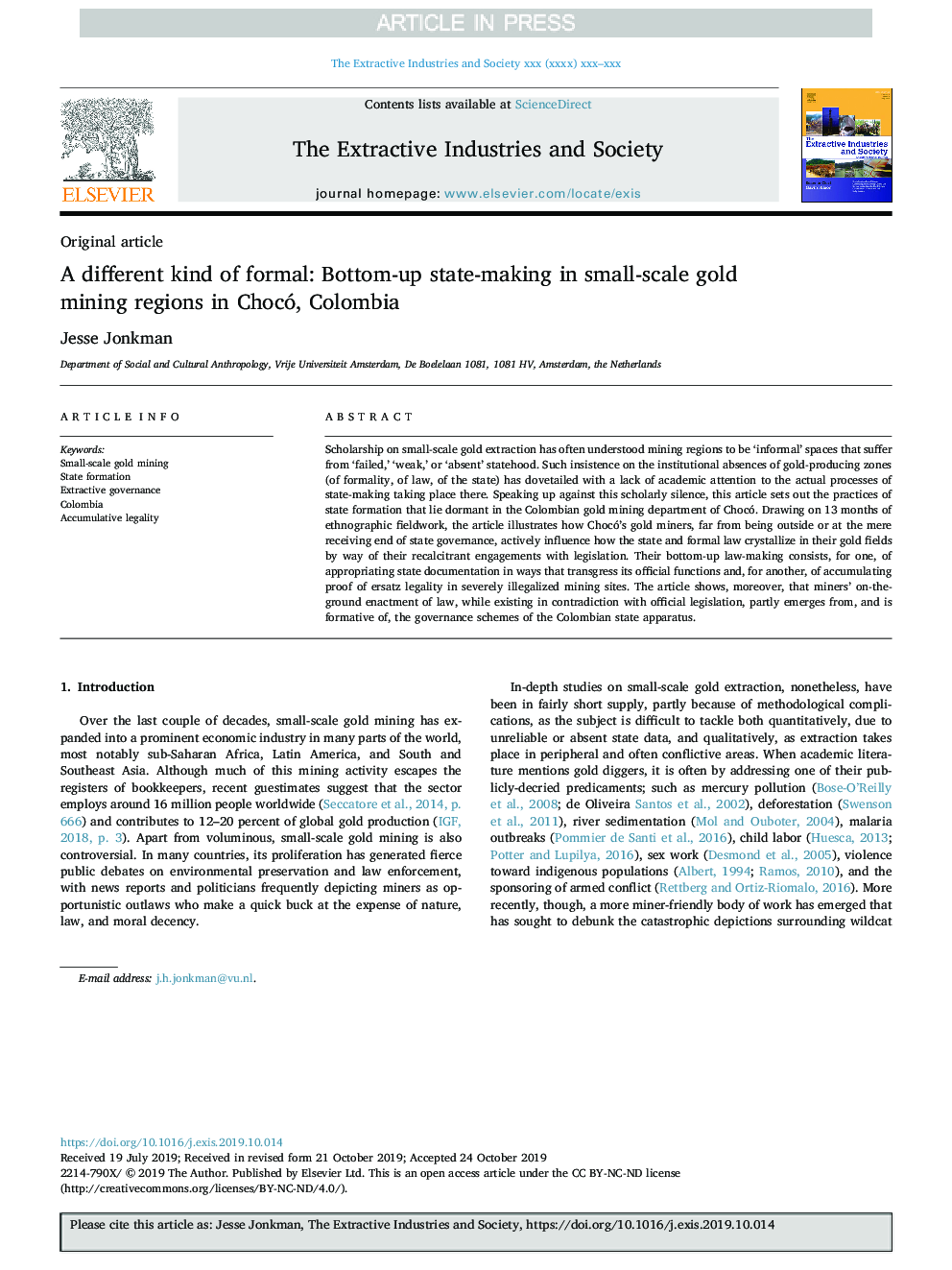| Article ID | Journal | Published Year | Pages | File Type |
|---|---|---|---|---|
| 13465793 | The Extractive Industries and Society | 2019 | 11 Pages |
Abstract
Scholarship on small-scale gold extraction has often understood mining regions to be 'informal' spaces that suffer from 'failed,' 'weak,' or 'absent' statehood. Such insistence on the institutional absences of gold-producing zones (of formality, of law, of the state) has dovetailed with a lack of academic attention to the actual processes of state-making taking place there. Speaking up against this scholarly silence, this article sets out the practices of state formation that lie dormant in the Colombian gold mining department of Chocó. Drawing on 13 months of ethnographic fieldwork, the article illustrates how Chocó's gold miners, far from being outside or at the mere receiving end of state governance, actively influence how the state and formal law crystallize in their gold fields by way of their recalcitrant engagements with legislation. Their bottom-up law-making consists, for one, of appropriating state documentation in ways that transgress its official functions and, for another, of accumulating proof of ersatz legality in severely illegalized mining sites. The article shows, moreover, that miners' on-the-ground enactment of law, while existing in contradiction with official legislation, partly emerges from, and is formative of, the governance schemes of the Colombian state apparatus.
Related Topics
Life Sciences
Environmental Science
Management, Monitoring, Policy and Law
Authors
Jesse Jonkman,
